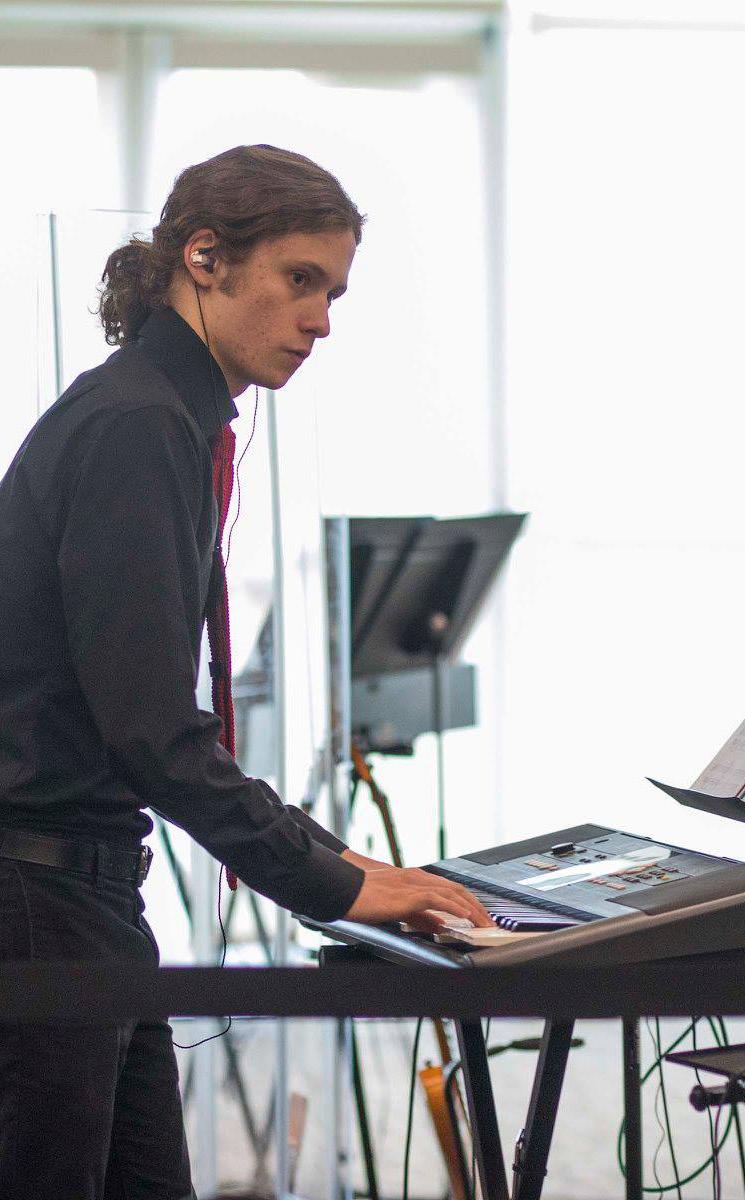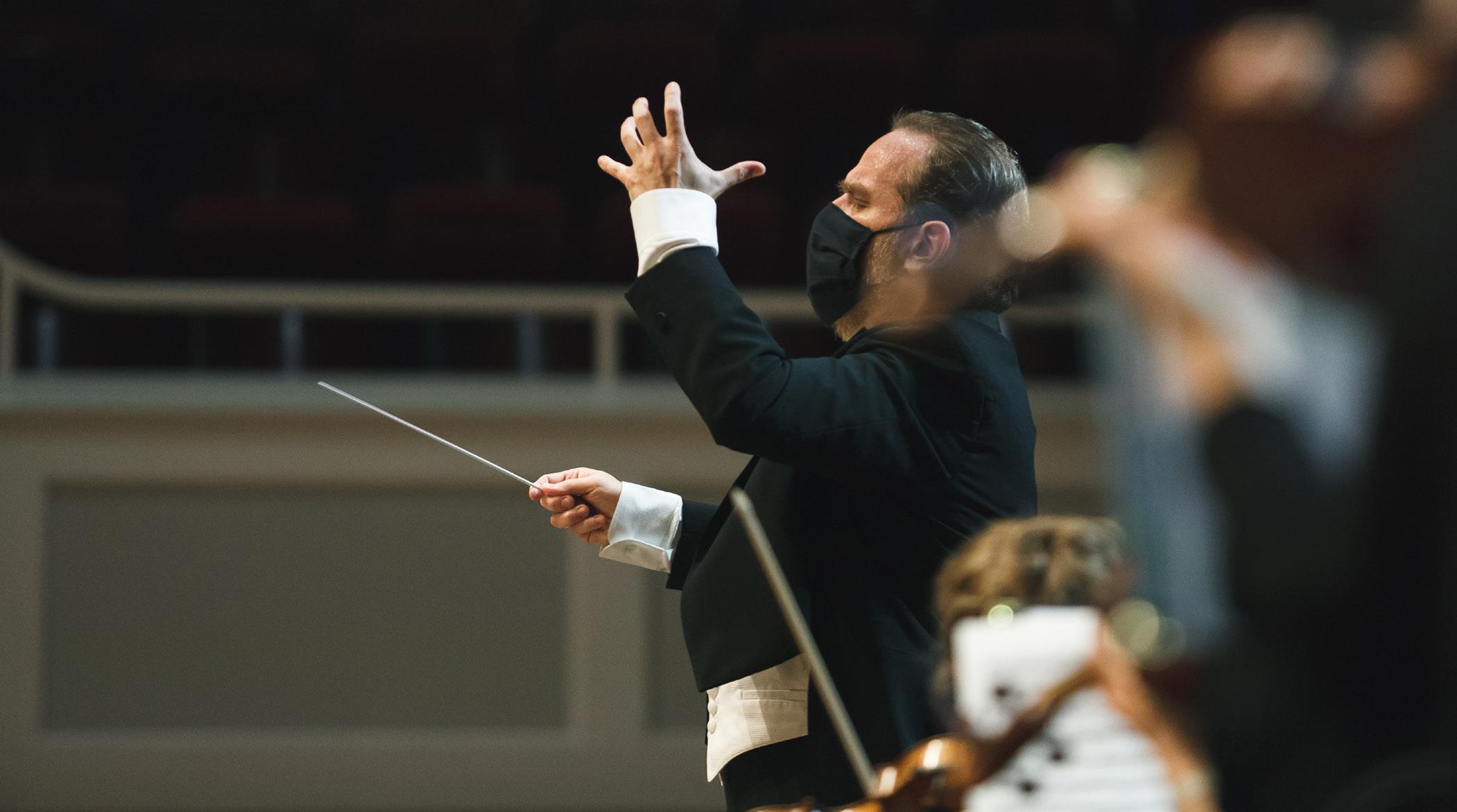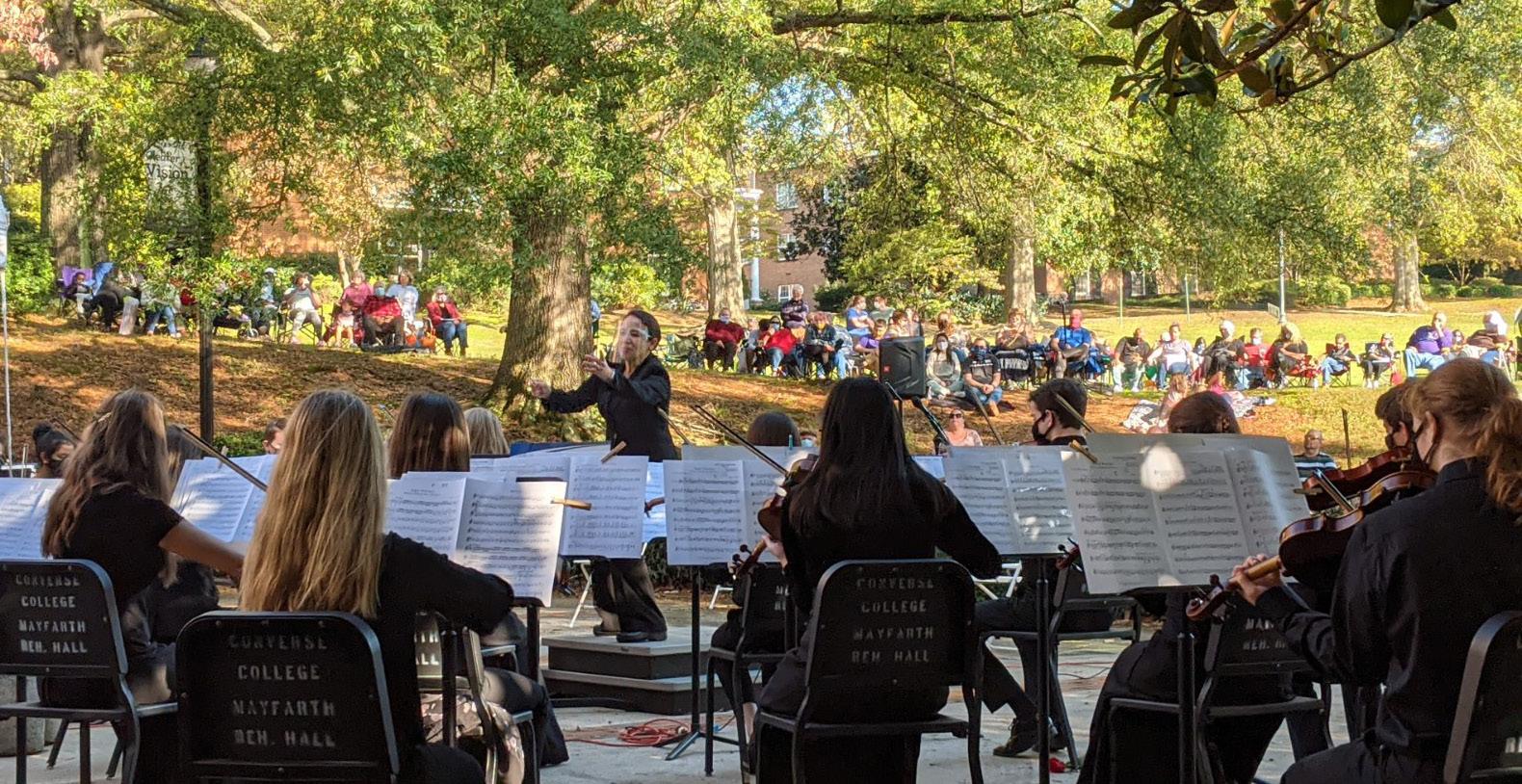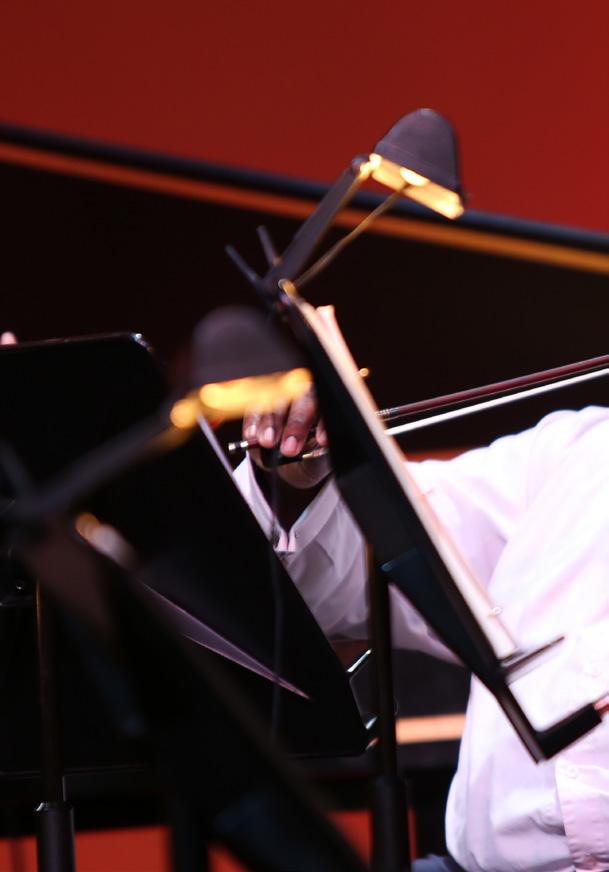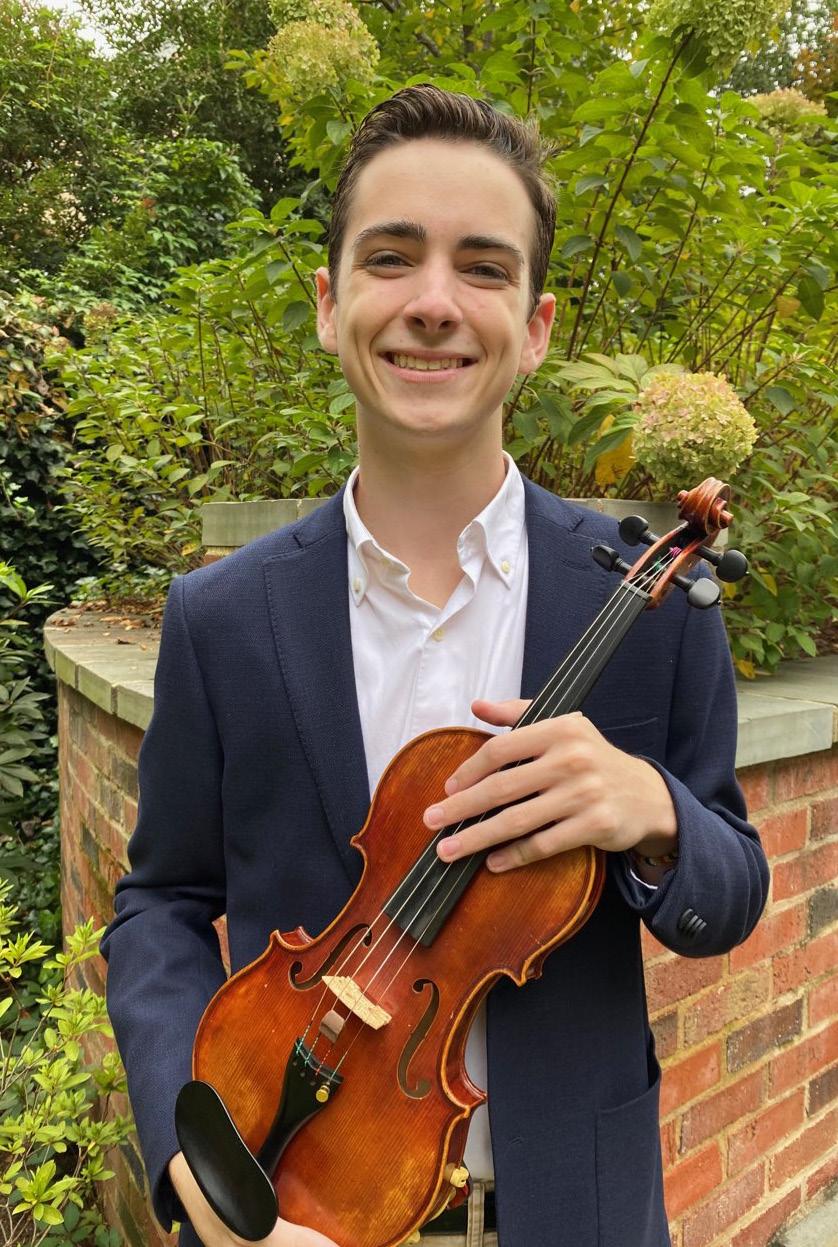
4 minute read
Spotlight: James Cheek
A Dedicated Community Servant
Since joining the Spartanburg Philharmonic Board of Directors in 2017, Mr. Cheek has generously given of his time and talent in support of the Philharmonic’s imperative to be a more diverse and inclusive organization. Mr. Cheek is no stranger to this type of work, having long served his Spartanburg community for decades; first as a voice for civil rights amid segregation, now as a public defender. All in pursuit of one goal - to uplift his community and find ways to be stronger together.
Advertisement
Whether he is bringing flowers for each Youth Orchestra musician to celebrate their inaugural concert or recommending enhancements to our Ludwig concert program, Mr. Cheek’s contributions to the Spartanburg Philharmonic have been invaluable. We are truly grateful for his leadership and the personal time he invests in strengthening the organization. Now, we invite you to get to know more about this truly great man, in his own words.
Q: As a student, you were a member of the Wofford College Glee Club. Today, in addition to being a board member and donor, you subscribe to several of our series. As someone that clearly appreciates a variety of music, what do you most love about it? A: The emotive aspect of music and the wide range of venues in which I can find relief and reassurance beyond distractive entertainment is my love affair with music. So, whether secular or spiritual, gospel to hymnal, classical to country, bluegrass or urban, a moment of exposure to the right song at that moment aurally impacts my spirit; lifting and soaring or conversely lulling and comforting as the experience refines rather than defines my situation. The universality of music is what most listeners and I appreciate even without realizing that in every piece, there will be a message though the individual is at that time unaware of the import and impact.
Q: Of all the Spartanburg Philharmonic concerts you’ve attended, which has been the most memorable for you?
A: Ludwig: Heroes and Revolution because of the music’s cultural demonstration of the timeless and seamless aspect and character of music spanning over generations and centuries stretching beyond geographical boundaries. As a child at Mary Wright School, we were taught of Beethoven’s racial identity and his contemporaries; that music reached beyond
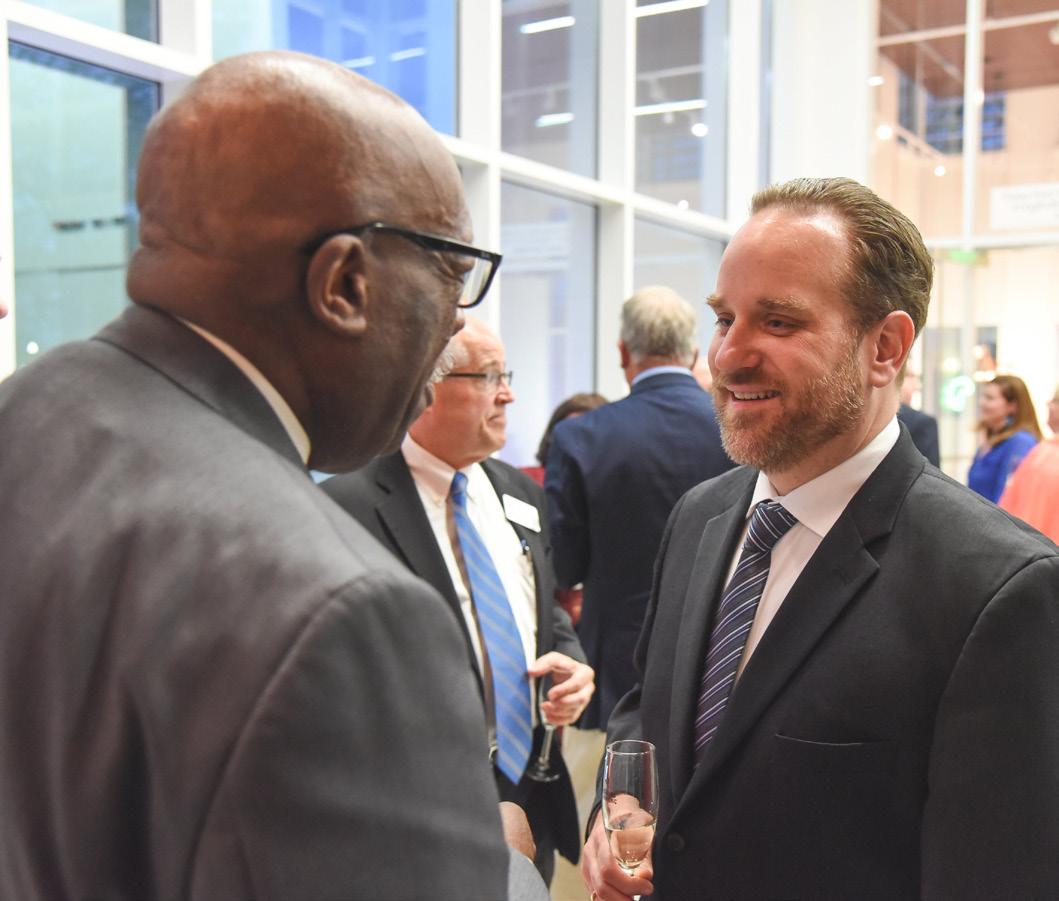
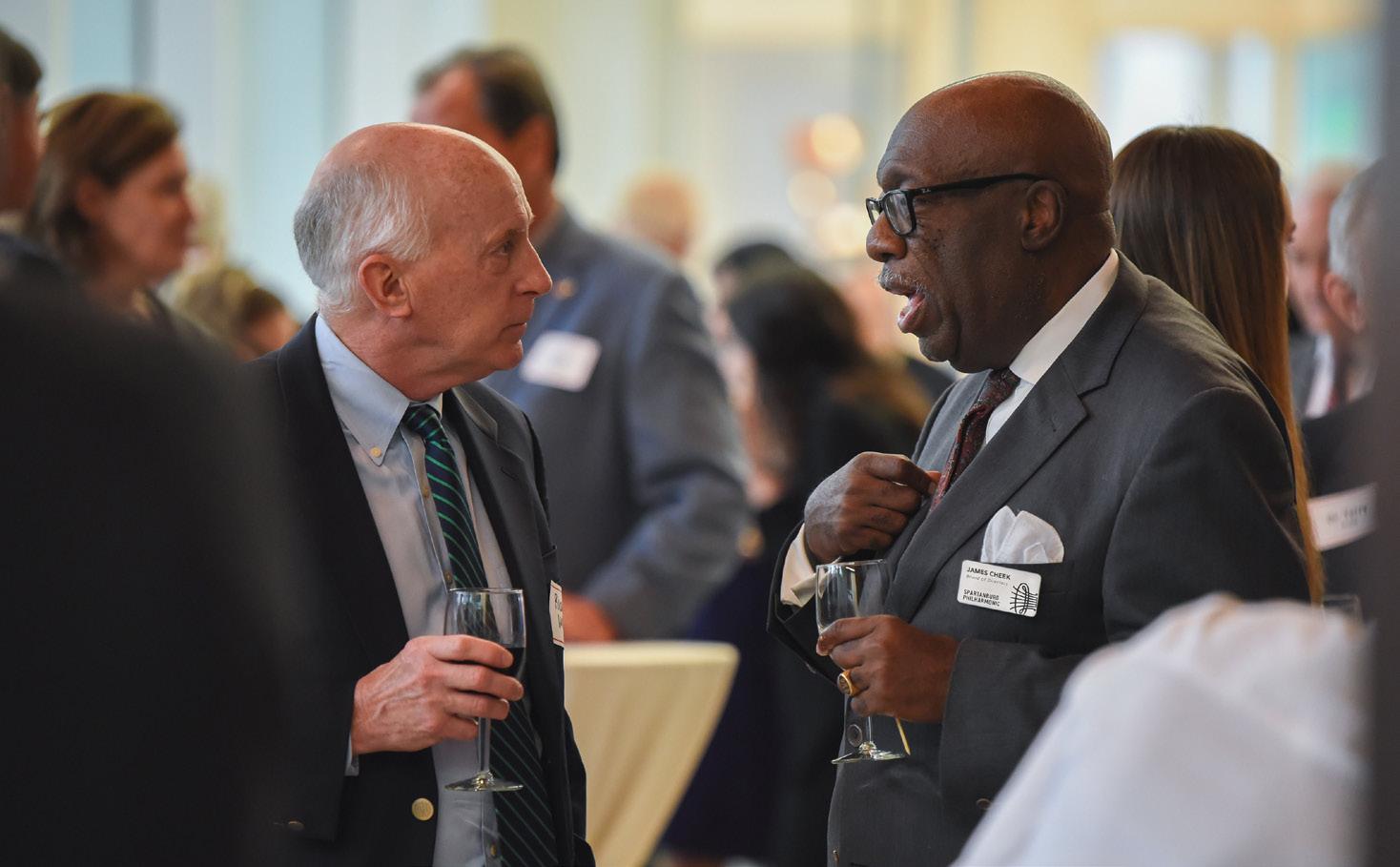
race, color, and creed. I was glad to see our Philharmonic take leadership in leading our nation in featuring the classical works and our conductor to expand our base and engage in greater inclusion. The contemporary piece “Klap Ur Handz” composed and conducted by Daniel Bernard Roumain dedicated to Civil Rights icon Rosa Parks was particularly exhilarating because I was fortunate to have met the inspiring and humble lady who changed the world at a national political convention. The piece captured the essence of an era and the religious worship expression of many of my people.
Q: Beyond giving your time to the Spartanburg Philharmonic as a Board Member, you also choose to donate generously, which is not a required part of your position. What compels you to support the Philharmonic in this way?
A: Supporting the Philharmonic through donations privileges me to honor and further my beloved brotherhood’s cardinal principles, Omega Psi Phi Fraternity: Manhood, Scholarship, Perseverance, and Uplift. For over a century, the Omega Psi Phi fraternity held stalwart those commitments to support endeavors to embrace humanity, promote intellectual enlightenment, sacrifice to maintain community and culture, and spirituality while connecting to others upwardly. The existence of an excellent performance venue that contemporaneously provides an avenue to those principles is astounding and worthy. More than entertaining, the Philharmonic performances nurture, strive for diversity and complete the soul. I denote as I donate.
Q: You’ve shared why you choose to donate to the Philharmonic, but what led you to join the Board of Directors? A: State Representative Rosalyn Henderson-Myers, a childhood neighbor and friend who shared many musical experiences engendered by our neighbors (a high school band director, the choral director at Carver, several church musicians, and a future national opera star), reminisced with me one day at the Courthouse. She was inspiring and engaging, told me of our similar philosophies and manner of community development, then smiled and “suggested” that she wanted “permission” to expand my opportunity for civic and cultural engagement; that she had submitted my name for consideration as a board member. Rep. HendersonMeyers knew the role would offer me a similar experience as hers, so non-acceptance was never an option. I am here, and I am grateful to be part of this dynamic organization.
Q: Since joining the board, your leadership has been invaluable as you’ve helped the Philharmonic be a part of meaningful conversations about diversity and access to music and music education. What do you envision as future opportunities for organizations like the Spartanburg Philharmonic?
A: Locally, incorporating a project “Feel Harmonic” designed to expand the audience through a series of chamber concerts in various communities partnering with church choirs, choral groups, dance studios and companies to capture the attention of young people and minorities. I envision substantial growth in the audience attendance and increased financial support once others discover the jewel – The Spartanburg Philharmonic. Regionally, perhaps an Ambassadors Program in several neighboring states bringing collegiate interns to be spotlighted while introducing them to another jewel – Spartanburg.

